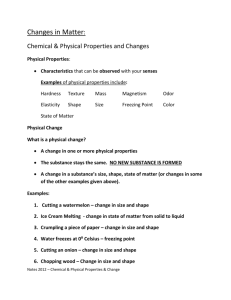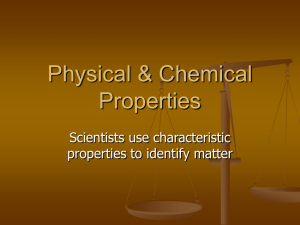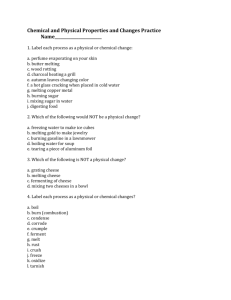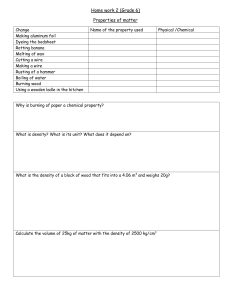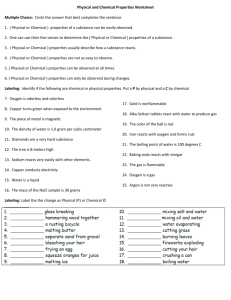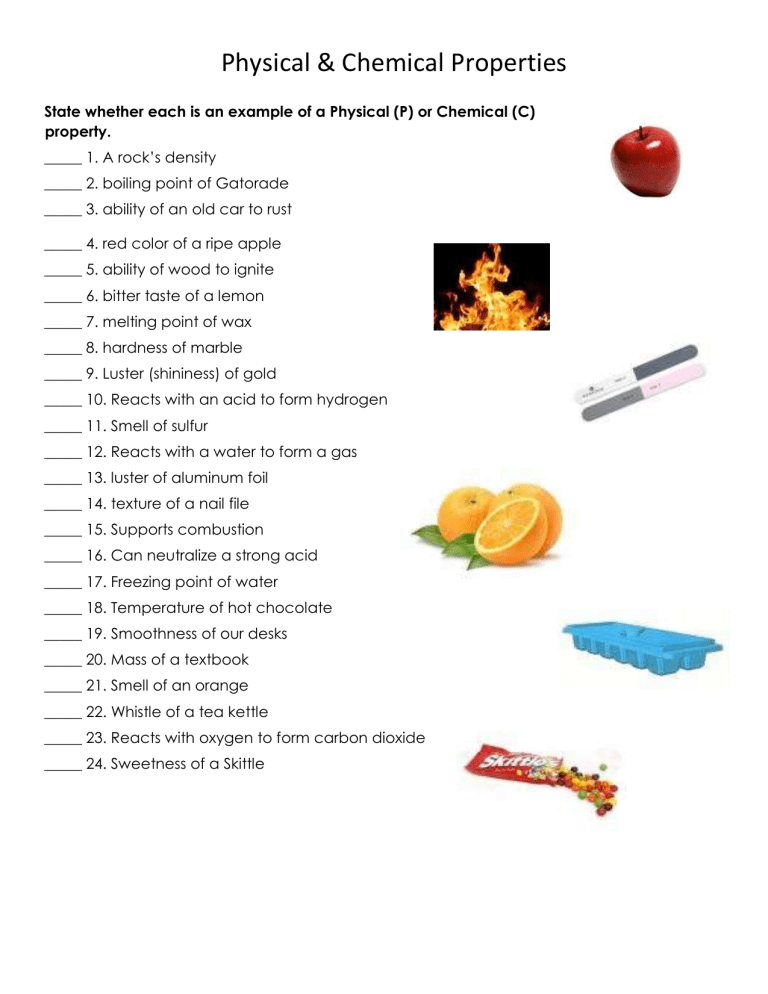
Physical & Chemical Properties State whether each is an example of a Physical (P) or Chemical (C) property. _____ 1. A rock’s density _____ 2. boiling point of Gatorade _____ 3. ability of an old car to rust _____ 4. red color of a ripe apple _____ 5. ability of wood to ignite _____ 6. bitter taste of a lemon _____ 7. melting point of wax _____ 8. hardness of marble _____ 9. Luster (shininess) of gold _____ 10. Reacts with an acid to form hydrogen _____ 11. Smell of sulfur _____ 12. Reacts with a water to form a gas _____ 13. luster of aluminum foil _____ 14. texture of a nail file _____ 15. Supports combustion _____ 16. Can neutralize a strong acid _____ 17. Freezing point of water _____ 18. Temperature of hot chocolate _____ 19. Smoothness of our desks _____ 20. Mass of a textbook _____ 21. Smell of an orange _____ 22. Whistle of a tea kettle _____ 23. Reacts with oxygen to form carbon dioxide _____ 24. Sweetness of a Skittle Physical & Chemical Changes State whether each is an example of a Physical (P) or Chemical (C) change. _____ 1. Glass breaking _____ 2. Hammering wood together to build a playhouse _____ 3. A rusting bicycle _____ 4. Melting butter for popcorn _____ 5. Glassblower creating sculptures _____ 6. Freezing a chocolate-covered banana _____ 7. Separating sand from gravel _____ 8. Spoiling milk _____ 9. Burning toast _____ 10. Making salt water to gargle for a sore throat _____ 11. Mixing lemonade powder into water _____ 12. Cream being whipped _____ 13. Water evaporating from a pond _____ 14. Cutting grass _____ 15. Burning leaves to clear a field _____ 16. Humidifier putting moisture into the air _____ 17. Corroding metal _____ 18. Bleaching your hair _____ 19. Fireworks exploding _____ 20. Squeezing oranges to make orange juice _____ 21. Frying an egg _____ 22. Pouring milk on your oatmeal _____ 23. Food rotting in the refrigerator _____ 24. Trimming a rose bush _____ 25. Making a chopped salad _____ 26. Rotting wood

